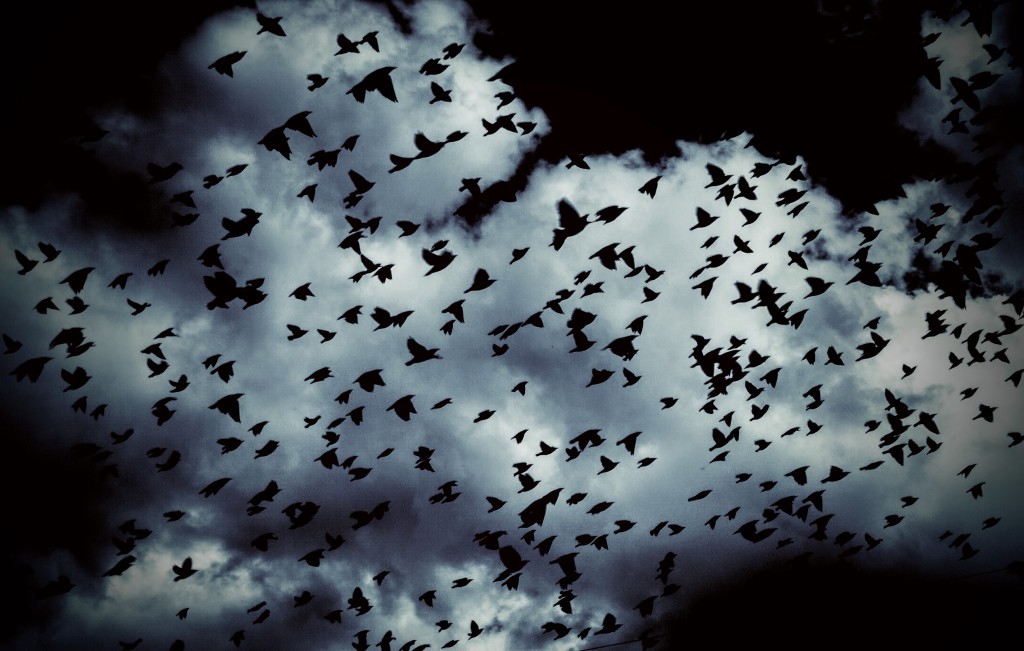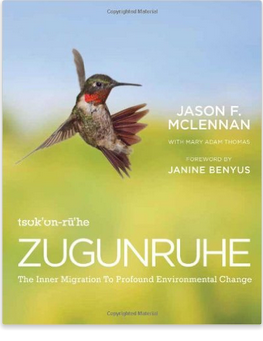 Fall brings change. The days shorten. The air cools. The migratory birds will soon take off.
Fall brings change. The days shorten. The air cools. The migratory birds will soon take off.
It’s a beautiful site to see them soar.
Before they depart, their agitation builds. They become increasingly restless.
The animal behaviorists call this moment “zugunruhe”.
And perhaps that’s not so different from what we, as a culture, are experiencing.
During our interview together, internationally acclaimed architect Ross Chapin (podcasts #13 and #14), introduced me to zugunruhe, referencing the work of Jason McLennan and his book by that name.
Ross paints a scene:
“Imagine that you’re a goose – you’ve spent the summer nibbling on minnows, insects, seaweed and grass…It’s getting toward the end of summer – the fall will be settling in, the days are getting shorter. Each day is passing by – and you feel a little more bit more fidgety and a little anxious. And you recognize that perhaps your brothers and sisters, your cousins, your aunts and uncles, your Mom and Dad, they’re all a little bit edgy themselves. You don’t know what to do. This is such a fine place. The food is good, but you have this nagging edge: it’s time to leave, time to get out of here.
seaweed and grass…It’s getting toward the end of summer – the fall will be settling in, the days are getting shorter. Each day is passing by – and you feel a little more bit more fidgety and a little anxious. And you recognize that perhaps your brothers and sisters, your cousins, your aunts and uncles, your Mom and Dad, they’re all a little bit edgy themselves. You don’t know what to do. This is such a fine place. The food is good, but you have this nagging edge: it’s time to leave, time to get out of here.
And at some point the agitation is overwhelming….”
Ross asserts that many of us may also be experiencing zugunruhe moments.
“As each of us, in our individual lives, is feeling edgy…
A lot of us are agitated. Something’s up, something’s going to happen, but we don’t know what to do or which direction is south…”
Interestingly, two of my other podcast guests (interviews forthcoming) referenced something very similar: how we, as a culture, may be going through a period of intense restlessness, unease, and agitation, feeling the need for a change that we can’t yet see.
For example, Keith Darcy, financial insider and veteran corporate ethicist, talked about a zugunruhe moment in our financial systems when, in a fateful emergency meeting on September 18th, 2008, then-House Speaker Nancy Pelosi met with treasury secretary Henry Paulson and Federal Reserve Chairman Ben Bernanke.
She had wanted to meet the next morning. Paulson had countered, “Tomorrow morning, will be too late.” Pelosi quotes Bernanke as saying, “If we do not act immediately, we will not have an economy by Monday.”
Having witnessed that moment of zugunruhe-like agitation, when our financial systems were on the brink of collapse, Keith regrets that many financial insiders still want to stay with “business as usual”.
In a very different context, Suzanne Anderson, the founder of Kore Evolution, a transformational leadership program for women, spoke to me about her work with women. During her years as an executive in Paris, she noticed that more and more professional women were coming to talk to her feeling distressed and lost.
They didn’t know what to do. They didn’t want to leave the system that had blessed them with professional success, yet, at the same time, they were getting sick and bailing out of their organizations.
“…Even with the suffering and even with their longing to make a difference…the women were sort of frozen…
It just seemed for many women [they looked like the] image of lemmings at the edge of a cliff – like there was nowhere to go. There was no path that said, ‘Come this way’.”
A zugunruhe moment.
The hopeful thing, as Ross continues the story of the goose, is what happens next.
“At some point the agitation is overwhelming and you open your wings and you take flight.
Now, up in the air, you look around and realize that everyone in your family had the same feeling and they’re flying next to you. Not only that, but the entire neighborhood, the entire town just took off together.
We’re flying in the same direction…
I am not alone. “
It is a beautiful image, of a flock of geese, who sense, both individually and as a collective, that it’s time to take flight. And their agitation turns into soaring.
He reflects on what we can learn from this as we search for direction.
“How do I act in the truth of who I am in relationship to my connection with a much larger community?
It’s a paradox. It’s like acting from an individual impulse, serving my own individual need, and yet, at the same time, I am part of a larger whole, I am part of a movement.
As we are facing the challenges of our times, if we can let go and let into our deeper selves then we will act in totally appropriate ways, while serving our own needs.
We look up and — and ah, we’re flying together – and, ah, the culture is shifting. We are going south. It’s time.”
The poet Mary Oliver wrote in her famous poem Wild Geese:
You do not have to be good.
You do not have to walk on your knees
for a hundred miles through the desert repenting.
You only have to let the soft animal of your body
love what it loves.
Tell me about despair, yours, and I will tell you mine.
Meanwhile the world goes on.
Meanwhile the sun and the clear pebbles of the rain
are moving across the landscapes,
over the prairies and the deep trees,
the mountains and the rivers.
Meanwhile the wild geese, high in the clean blue air,
are heading home again.
Whoever you are, no matter how lonely,
the world offers itself to your imagination,
calls to you like the wild geese, harsh and exciting –
over and over announcing your place
in the family of things.
Perhaps this agitation so many of us are feeling is just a sign that it’s time – to get ready to fly.










One Response
‘Engaging Presence’ feels most apt.
What a rich and poetic context you weave for your contributors!
Congratulations — and blessings